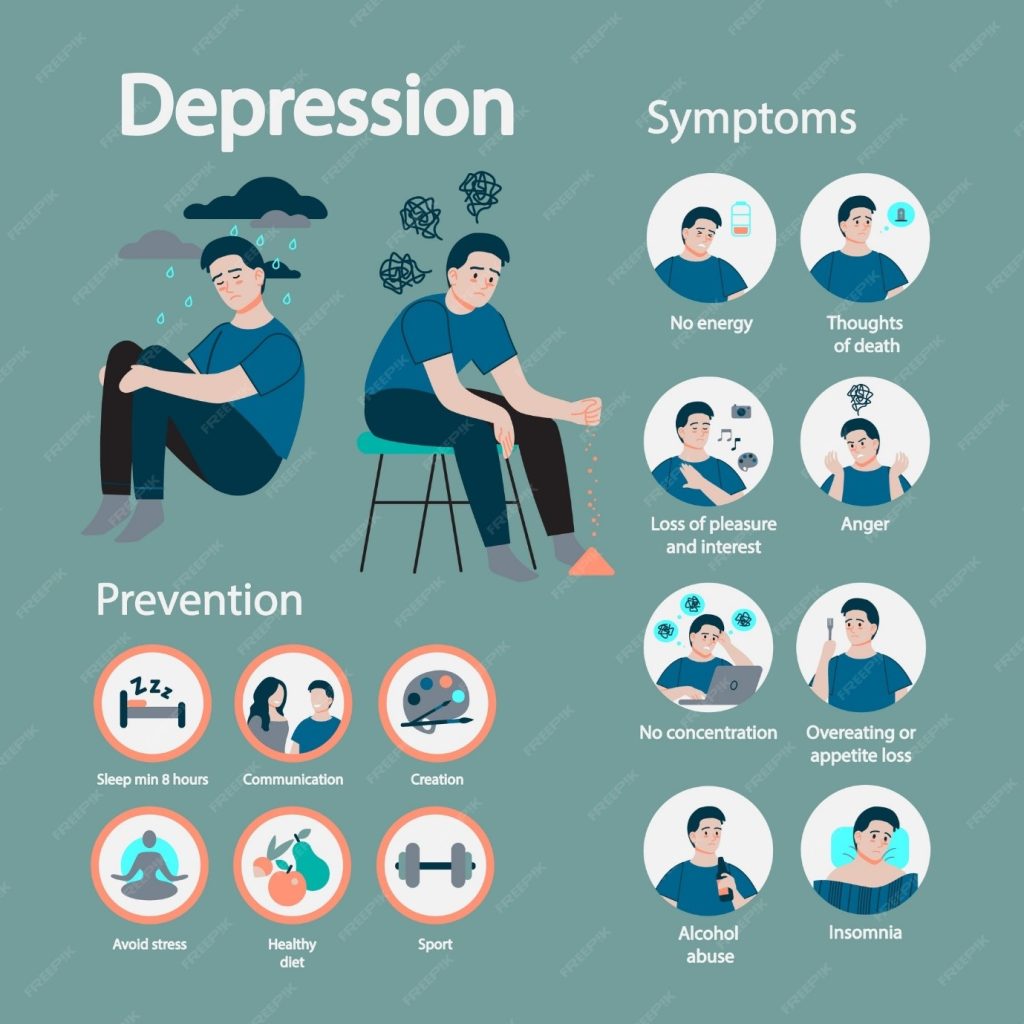Understanding Depression Symptoms: A Comprehensive Guide to Recognizing and Addressing the Signs of Depression

Image Source: FreeImages
## What is depression?
Depression is a complex mental health condition that affects millions of people worldwide. It goes beyond just feeling sad or blue; it is a persistent state of low mood that can have a profound impact on a person’s daily life. Depression is characterized by a combination of emotional, physical, and cognitive symptoms that vary in severity from person to person. It is important to understand the key aspects of depression in order to recognize and address its signs effectively.
Types of depression
Depression comes in various forms, each with its own unique set of symptoms and characteristics. Major Depressive Disorder (MDD) is the most common type of depression, where individuals experience persistent feelings of sadness, loss of interest, and a lack of energy. Other types include Persistent Depressive Disorder (PDD), which involves long-term depressive symptoms, and Seasonal Affective Disorder (SAD), which occurs during specific seasons. Understanding the different types of depression can help individuals and their loved ones identify the specific symptoms they may be facing.
Common symptoms of depression
Depression manifests differently in each person, but there are common symptoms that can indicate its presence. These symptoms can be categorized into emotional, physical, and cognitive domains. Emotional symptoms may include feelings of sadness, hopelessness, and irritability. Physical symptoms can include changes in appetite, sleep disturbances, and fatigue. Cognitive symptoms may involve difficulty concentrating, making decisions, and experiencing negative thoughts. Recognizing these symptoms is crucial for early detection and intervention.
Recognizing the signs of depression
Recognizing the signs of depression in oneself or in others can be challenging, as symptoms may vary and individuals may try to conceal their struggles. It is important to pay attention to changes in behavior, mood, and overall well-being. Some signs to look out for include withdrawal from social activities, loss of interest in previously enjoyed hobbies, increased irritability or agitation, and significant changes in sleep patterns. By being attentive and sensitive to these signs, we can provide support and encourage seeking professional help.
Understanding clinical depression
Clinical depression, also known as major depressive disorder, is a severe form of depression that can significantly impact a person’s ability to function in their daily life. It is important to differentiate clinical depression from temporary feelings of sadness or grief. Clinical depression is characterized by persistent and intense symptoms that can last for weeks, months, or even years. It is a medical condition that requires professional intervention and treatment.
High functioning depression
High functioning depression, sometimes referred to as “smiling depression,” is a unique and often misunderstood form of depression. Individuals with high functioning depression may appear to be functioning well on the surface, but internally, they struggle with depressive symptoms. They may mask their feelings behind a smile and continue to meet their responsibilities. It is important to recognize that even those who seem to have it all together can be silently battling depression and may require support and treatment.
Exploring the emotional and physical symptoms of depression
Depression affects both the mind and the body, and understanding the emotional and physical symptoms is essential for a comprehensive understanding of the condition. Emotional symptoms may include feelings of sadness, guilt, or worthlessness, while physical symptoms can manifest as changes in appetite, sleep disturbances, and unexplained aches and pains. By exploring and acknowledging these symptoms, we can better grasp the impact depression has on an individual’s overall well-being.
Impact of depression on daily life
Depression can have a profound impact on various aspects of a person’s daily life. It can affect their relationships, work or school performance, and overall quality of life. Individuals with depression may struggle with maintaining social connections, experience difficulties concentrating or making decisions, and have a decreased ability to fulfill their responsibilities. Understanding the impact of depression can help individuals seek the necessary support and make necessary adjustments to their daily routines.
Seeking help for depression
If you or someone you know is experiencing symptoms of depression, it is important to seek help and support. Professional help can come in the form of therapists, psychologists, or psychiatrists, who can provide a proper diagnosis and develop an appropriate treatment plan. Additionally, reaching out to trusted friends or family members can provide much-needed emotional support. Remember, seeking help is a sign of strength, and there are resources available to assist in managing and overcoming depression.
Treatment options for depression
There are various treatment options available for depression, and the choice of treatment depends on the severity and individual needs. Common treatment approaches include psychotherapy, medication, or a combination of both. Psychotherapy, such as cognitive-behavioral therapy (CBT), can help individuals identify and change negative thought patterns and behaviors. Medications, such as antidepressants, can help regulate brain chemistry. It is important to consult with a healthcare professional to determine the most suitable treatment plan.
Coping strategies for managing depression symptoms
In addition to professional treatment, there are several coping strategies that individuals can incorporate into their daily lives to manage depression symptoms. Engaging in regular exercise, practicing mindfulness and relaxation techniques, maintaining a healthy diet, and getting enough sleep are all important self-care practices. Additionally, participating in activities that bring joy and fulfillment, connecting with supportive communities, and setting realistic goals can contribute to overall well-being and resilience in the face of depression.
Supporting someone with depression
Supporting someone with depression requires empathy, understanding, and patience. It is important to create a safe space for open communication and to listen without judgment. Encouraging them to seek professional help and offering to accompany them to appointments can be beneficial. Avoiding statements like “snap out of it” or “just think positive” is crucial, as depression is not a matter of willpower or attitude. By offering support, reassurance, and understanding, we can help our loved ones navigate through the challenges of depression.
Resources for depression support
There are numerous resources available for individuals seeking support and information about depression. National helplines, online forums, and support groups can provide a sense of community and a platform for sharing experiences. Additionally, books, podcasts, and websites dedicated to mental health can offer valuable insights and guidance. It is important to utilize these resources to gain knowledge, find comfort, and connect with others who have similar experiences.
Quotes about depression and mental health
To provide inspiration and encouragement, here are a few quotes about depression and mental health:
- “You don’t have to control your thoughts. You just have to stop letting them control you.” – Dan Millman
- “What mental health needs is more sunlight, more candor, and more unashamed conversation.” – Glenn Close
- “Sometimes the people around you won’t understand your journey. They don’t need to, it’s not for them.” – Joubert Botha
- “Your illness does not define you. Your strength and courage does.” – Unknown
- “It is during our darkest moments that we must focus to see the light.” – Aristotle
Conclusion
Depression is a complex and challenging condition, but with awareness, understanding, and support, it can be managed and overcome. By recognizing the signs, seeking help, and implementing coping strategies, individuals can regain control of their lives and experience a brighter future. Remember, you are not alone, and there are resources and communities available to provide the support and guidance needed on the journey to recovery. Let us work together to break the stigma surrounding depression and create a world where mental health is a priority.
Ash Groenewald
